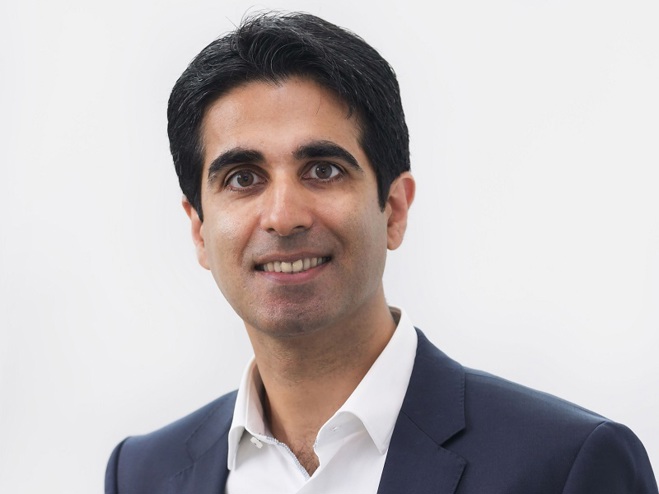Professor Omer Aziz is the clinical lead for the peritoneal tumour service at the Colorectal and Peritoneal Oncology Centre (CPOC) at The Christie. Here, he talks about how the surgical research team, which Professor Aziz is a part of, aims to deliver ground breaking improvements in treatment outcomes for cancer patients having surgery.

This surgical research team – which includes doctors, nurses, scientists, allied health professionals, research managers and students, all working together in a dedicated research environment – is one of the first from The Christie to move into the new Paterson Building. We’re already seeing the benefits, both through close collaboration with colleagues working in other areas, and because the building is directly connected to a comprehensive cancer centre and its biobank, which is unique.
The aim of our hub is to change surgical practice through cutting-edge translational research. We’ll lead clinical trials, innovate and develop new treatments, and ultimately guide how surgery and anaesthesia are managed within large systems such as the NHS. When people think of research, they don’t necessarily think of surgery, which is something we’d like to change.
It’s also something no other cancer centre in the UK has. Indeed, there are very few other places in the world that would have as many research-active cancer surgeons and anaesthetists in one place.
Having a surgical research hub directly connected to a working hospital means our researchers can work with rare tumours that they might not have access to in a more traditional research environment. The Paterson will be connected to The Christie via a bridge, meaning that I can get from my theatre to the lab within minutes. You really can’t underestimate just how valuable that is.
The other thing about the new building is that it has been designed with collaboration in mind. I’m a colorectal surgeon, so not only will I be working alongside other experts in that field, but it’ll be also much easier to collaborate with other surgeons – urologists, gynaecologists, and plastic surgeons – as well as people from other specialities (anaesthetists, oncologists, radiologists, and pathologists) to understand how we can support each other and drive research forward.
The building will be a beacon for experts from across the UK and beyond. Teams from Melbourne and Bordeaux have already visited us in the Paterson and are interested in collaborating with us. Cancer is something that affects all of us, whether we are personally diagnosed or not, and we need as many people working on it as possible. The new building will really help facilitate that.
The team we have at The Christie is amazing. We have a world-leading translational research program for tumours that have spread to the lining of the abdomen (peritoneal tumours), have established a practice-changing prostate cancer research trial, been a part of exciting melanoma research, and are one of the first units to set up a new surgical treatment for patients with advanced ovarian cancer. The Paterson is an exciting opportunity to build on this solid platform.
You can find out more about surgery at The Christie on the surgery section of our website.
The Paterson building was partly funded by donations to The Christie Charity, Cancer Research UK and The University of Manchester and will be one of the top cancer research centres in the world.
